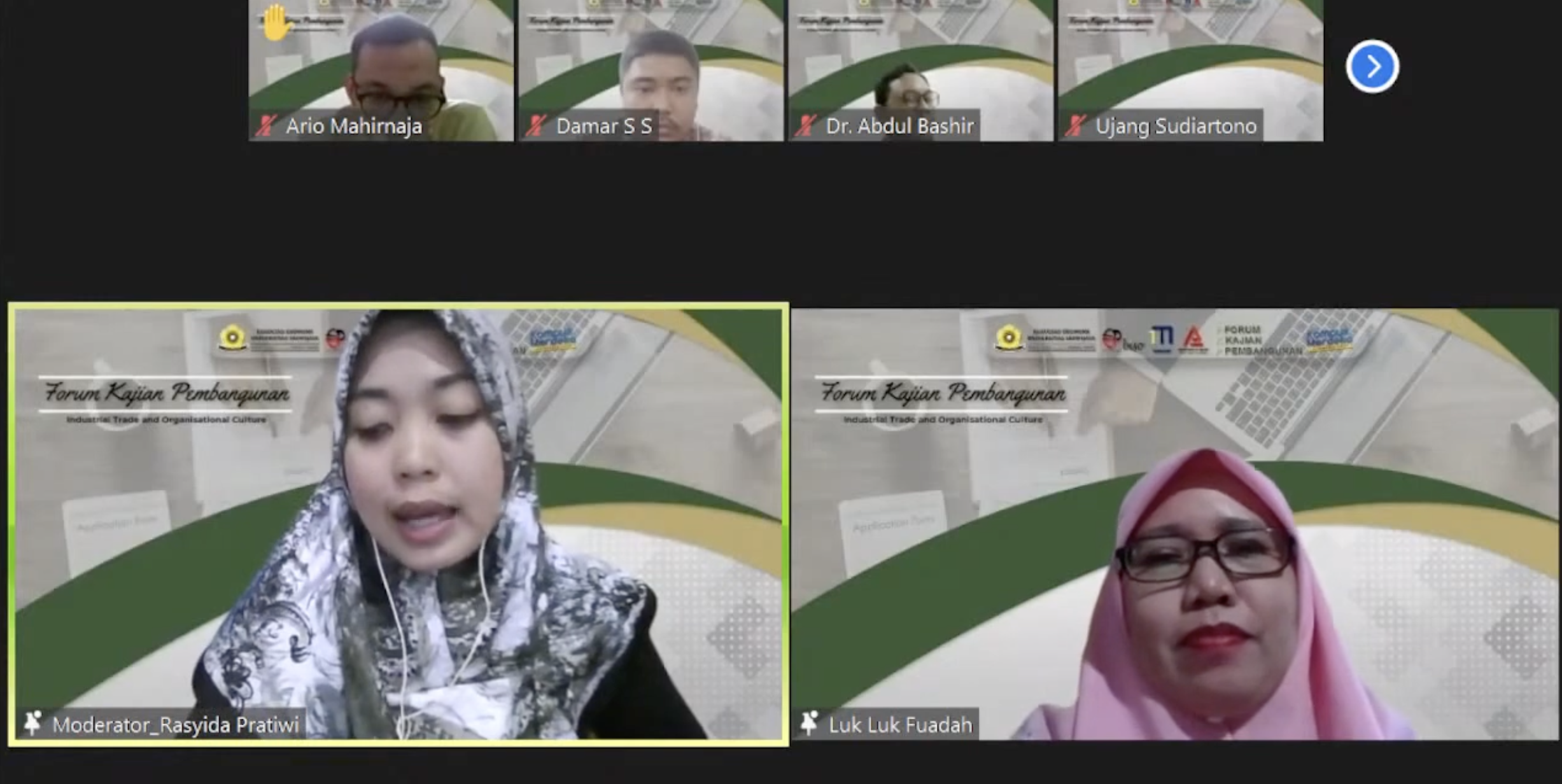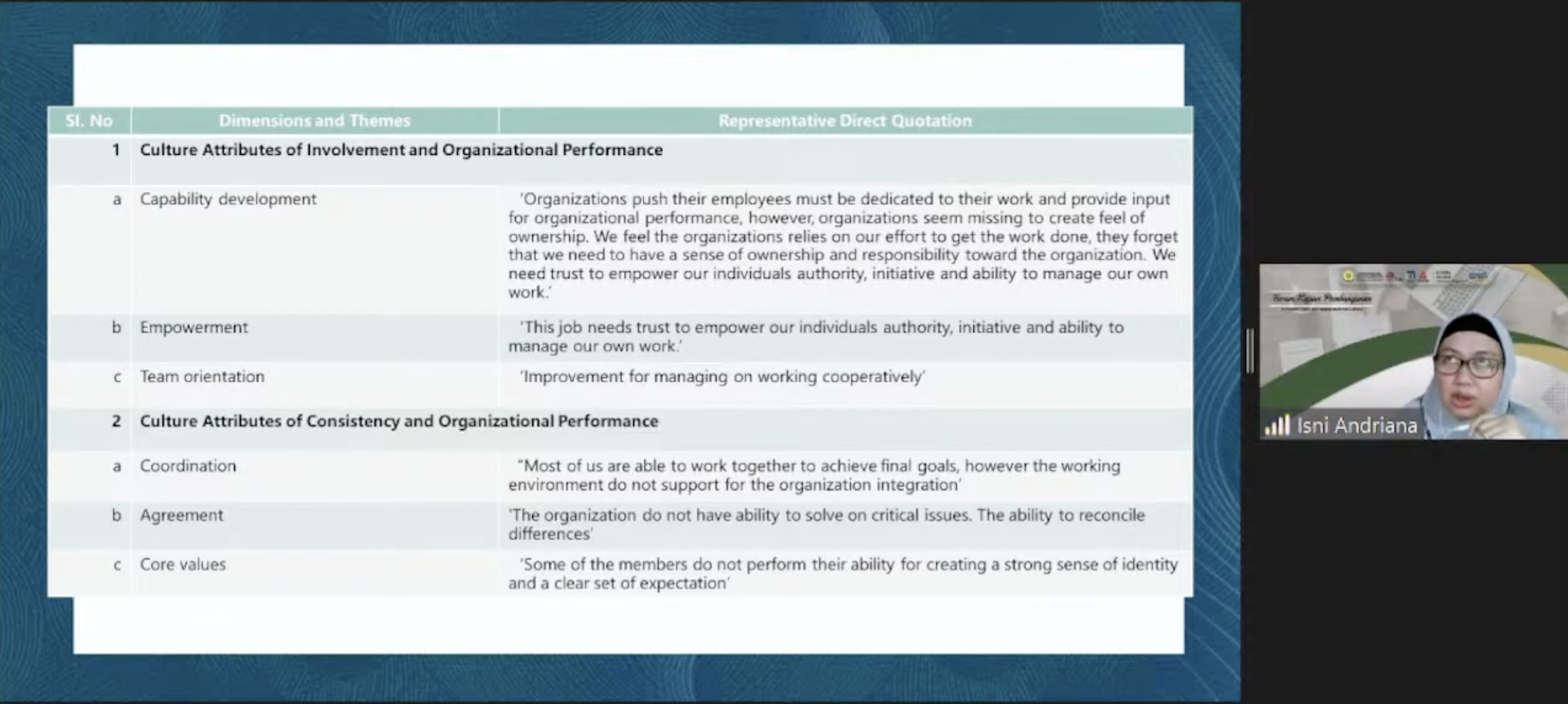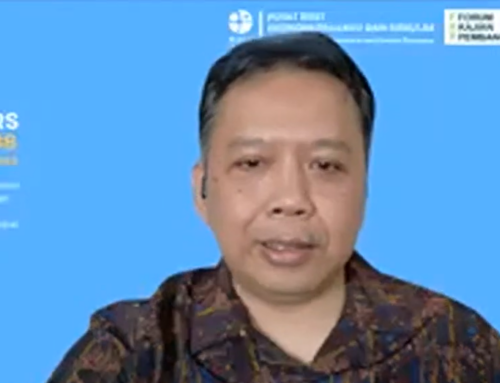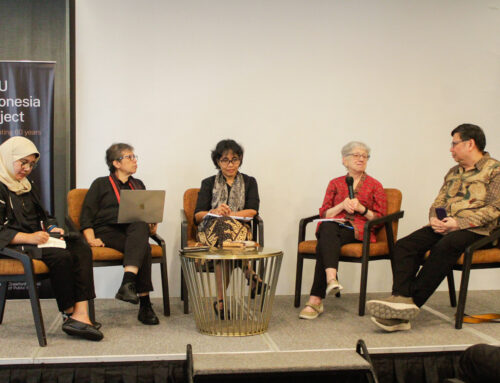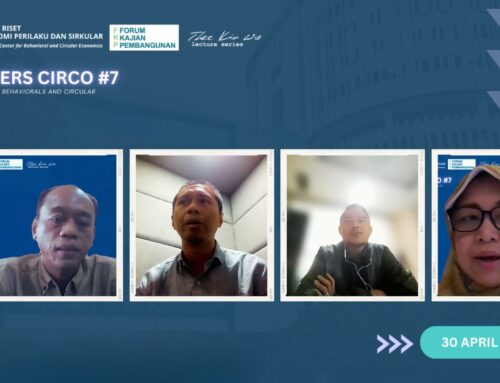FKP hosted by Universitas Sriwijaya with Gustriani (Economic Development of Faculty of Economics Universitas Sriwijaya), Isni Adriana (Management Department of Faculty of Economics Universitas Sriwijaya), and Luk Luk Fuadah (Accounting Department of Faculty of Economics Universitas Sriwijaya). Thursday, 28 July 2022.
SUMMARY
- FKP hosted by Faculty of Economics, Universitas Sriwijaya featured three studies conducted by faculty members. The first study presented was on the determinants of Indonesia’s intra-industry trade for coffee commodities. As one of the largest coffee-producing countries in the world, Indonesia faces a high and stable international demand for its coffee production. Universitas Sriwijaya’s researchers have followed the coffee industry in South Sumatra since 2013, exploring in depth the sourcing, supply chain, and trade of the coffee commodity.
The global market for Indonesian coffee from the ASEAN region can still be expanded. Currently, the demand for Indonesian coffee is quite high from Malaysia, but there is still ample opportunity to expand demand from Vietnam and Thailand. To expand demand, it is important to study the degree of integration of intra-industry trade for Indonesian coffee commodities with trading partners in ASEAN and determine the factors that influence the intra-industry trade of the coffee processing industry.
Gustriani (UNSRI) explained that their analysis shows there is varying degree of integration of Intra Industry Trade (IT) for Indonesian coffee commodities with trading partner countries. Vietnam has the strongest intra-industry trade integration with Indonesia, followed by Thailand and Malaysia. Intra-industry trade for coffee commodities between Indonesia and Vietnam is at the strongest level due to the large market of each coffee industry, Indonesia’s strong coffee character, and the development of coffee processing.
Among the lowest intra-industry integration is with the Philippines and this is thought to be due to extreme weather, rapid urbanization, and the shortage of labor for coffee harvesting (due to the shift from agriculture to mining in the Philippines).
- The second study presented was on organizational culture in Indonesian higher education which has been plagued by internal inefficiencies and ineffective initiatives as a result of the country’s centralized educational system. In the absence of autonomy and a decreased sense of community inside higher education institutions, a lack of accountability and duty to society has emerged. Isni Andriana (UNSRI) explained that one of their findings is there is a lack of values and norms that are most directly related to organizational performances. For example, there is a lack of feeling of involvement, resulting in a lack of personal engagement by individuals within the organization.
- The third study presented was whether sustainability reporting and e-commerce have a positive effect on tax avoidance and, in turn, whether tax avoidance has a positive effect on a company’s performance. The study found a significant negative association between sustainability reporting and tax avoidance, meaning that those companies that disclose their sustainability indicators are less likely to avoid paying tax. However, the study also found that e-commerce has a positive and significant effect on tax avoidance. This means that the higher the level of e-commerce in SMEs in Palembang, the higher the tax avoidance. Is it thought that small and medium business owners can avoid paying tax by selling products if they make extensive use of e-commerce. The results of this study is useful in developing regulations governing small and medium businesses in Indonesia, especially since online sales have proliferated during the pandemic.
